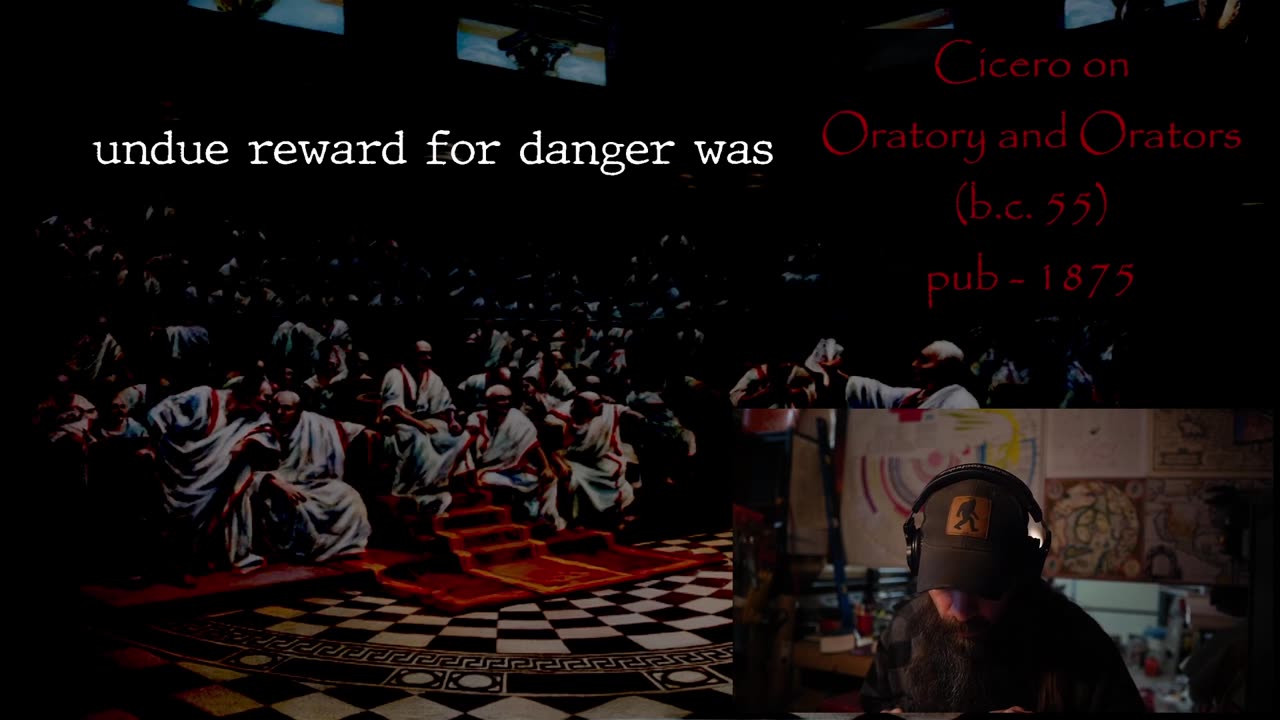Premium Only Content

Cicero on Oratory - B2 - LI LII
Cicero on Oratory - B2 - LI LII
The video discusses Cicero's insights on effective oratory, emphasizing the necessity to evoke strong emotions in the audience. He outlines various emotional states like love, hatred, and envy, detailing how oratory should respond to these feelings to persuade the audience effectively.
Key Points:
The Role of Emotion in Oratory
Cicero emphasizes that the effectiveness of oratory hinges on the ability to excite the minds of the audience. Rather than trivial subjects, oratory should tackle significant issues that resonate emotionally, ensuring engagement with the audience's deep feelings.
Enacting Virtue to Gain Favor
To win favor, speakers must advocate for causes that highlight virtuous intent, showing that they are acting for the benefit of others rather than personal gain. This selflessness engages the audience's feelings and promotes a positive response.
Managing Hatred and Anger
Cicero outlines strategies for managing negative emotions like hatred and anger. By addressing unfavorable sentiments tactfully and emphasizing virtuous qualities in allies or victims, speakers can redirect audience sentiments away from animosity.
The Dynamics of Fear and Hope
The speaker should address both personal and public fears to create empathy and anxiety within the audience, motivating them towards a common purpose or hope for a better future.
Influence of Envy as an Emotion
Cicero notes that envy is particularly potent among people, especially when they perceive others outpacing them. He suggests strategies to mitigate envy towards successful individuals by framing their achievements as not solely self-serving.
Utilizing Pity for Persuasion
Eliciting pity can powerfully affect audiences. By relating the suffering of others to the audience's own experiences, speakers can create a connection that reinforces their message and promotes compassion.
-
 LIVE
LIVE
LFA TV
3 hours agoLFA TV ALL DAY STREAM - THURSDAY 8/28/25
5,772 watching -
 2:04:35
2:04:35
Game On!
19 hours ago $2.59 earnedCollege Football Is BACK! Week 1 Preview!
27.7K1 -
 4:00:18
4:00:18
The Bubba Army
1 day agoMinneapolis Shooter Story Unfolds! - Bubba the Love Sponge® Show | 8/28/25
58.2K8 -
 LIVE
LIVE
JuicyJohns
1 hour ago $0.11 earned🟢#1 REBIRTH PLAYER 10.2+ KD🟢
28 watching -
 LIVE
LIVE
GritsGG
1 hour agoWin Streaking! Most Wins 3485+ 🧠
94 watching -
 16:58
16:58
marcushouse
14 hours ago $3.98 earnedSpaceX Starship Flight 10: What Really Happened! 🚀
47.7K13 -
 3:47
3:47
Blackstone Griddles
15 hours agoCampground Meal Planning on the Blackstone Camping Griddle
19.8K1 -
 28:13
28:13
Her Patriot Voice
15 hours ago $1.99 earnedIs Flag Burning Free Speech?
23.6K20 -
 17:51
17:51
TheRoyaltyAutoService
17 hours ago $0.86 earnedIs Flat Rate Ruining The Auto Repair Industry?!
22.5K9 -
 2:02:05
2:02:05
BEK TV
1 day agoTrent Loos in the Morning - 8/28/2025
23.4K